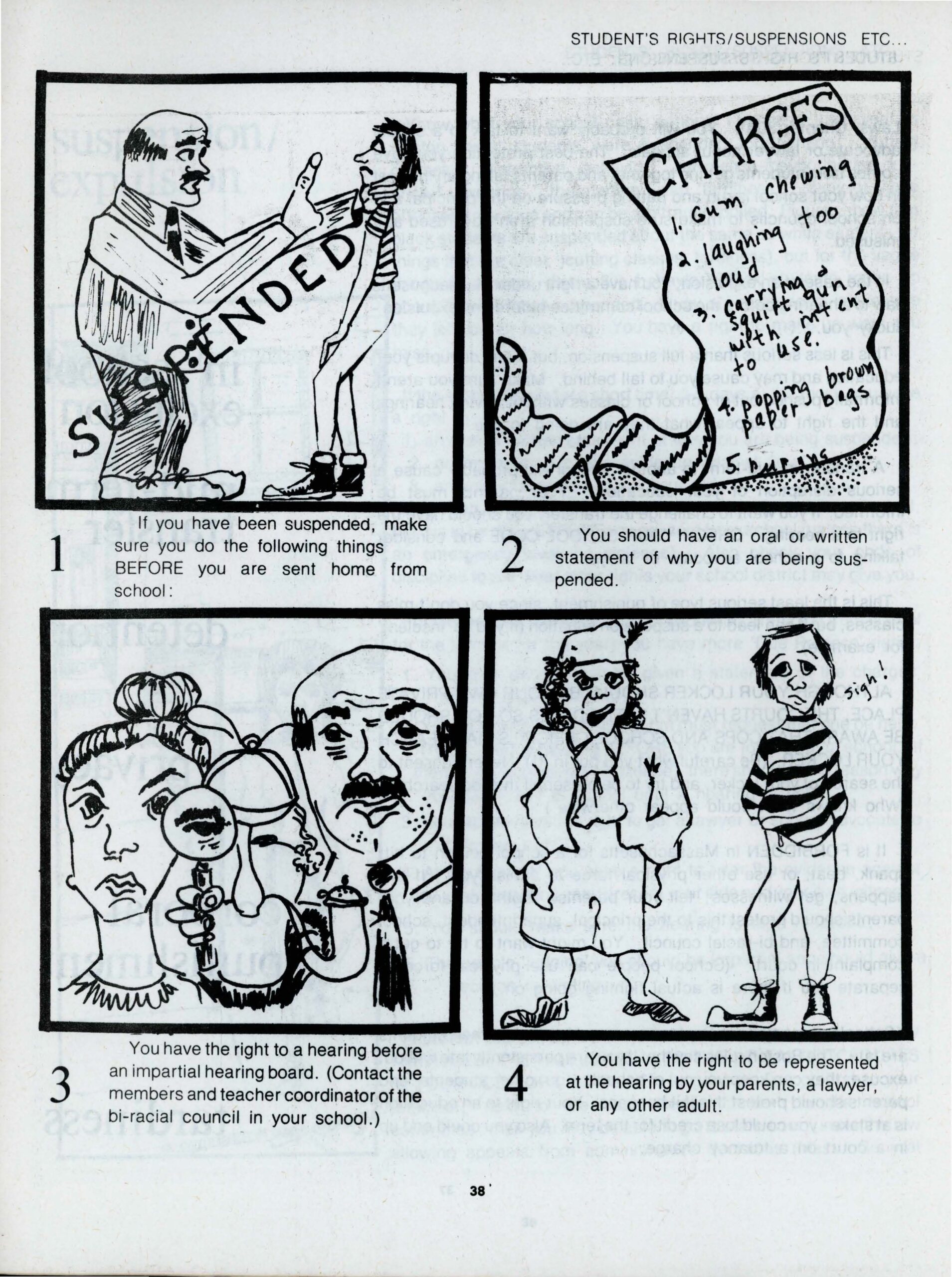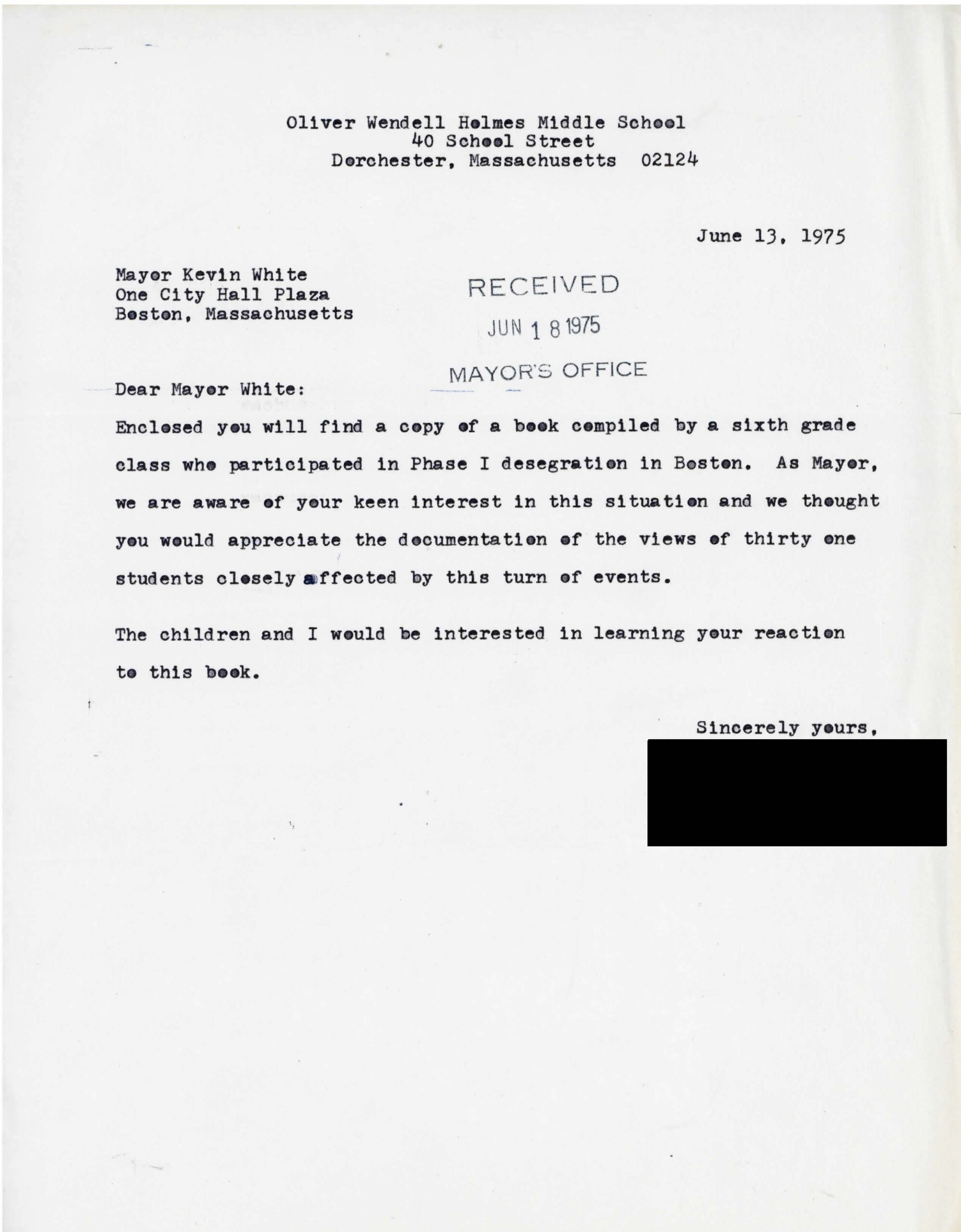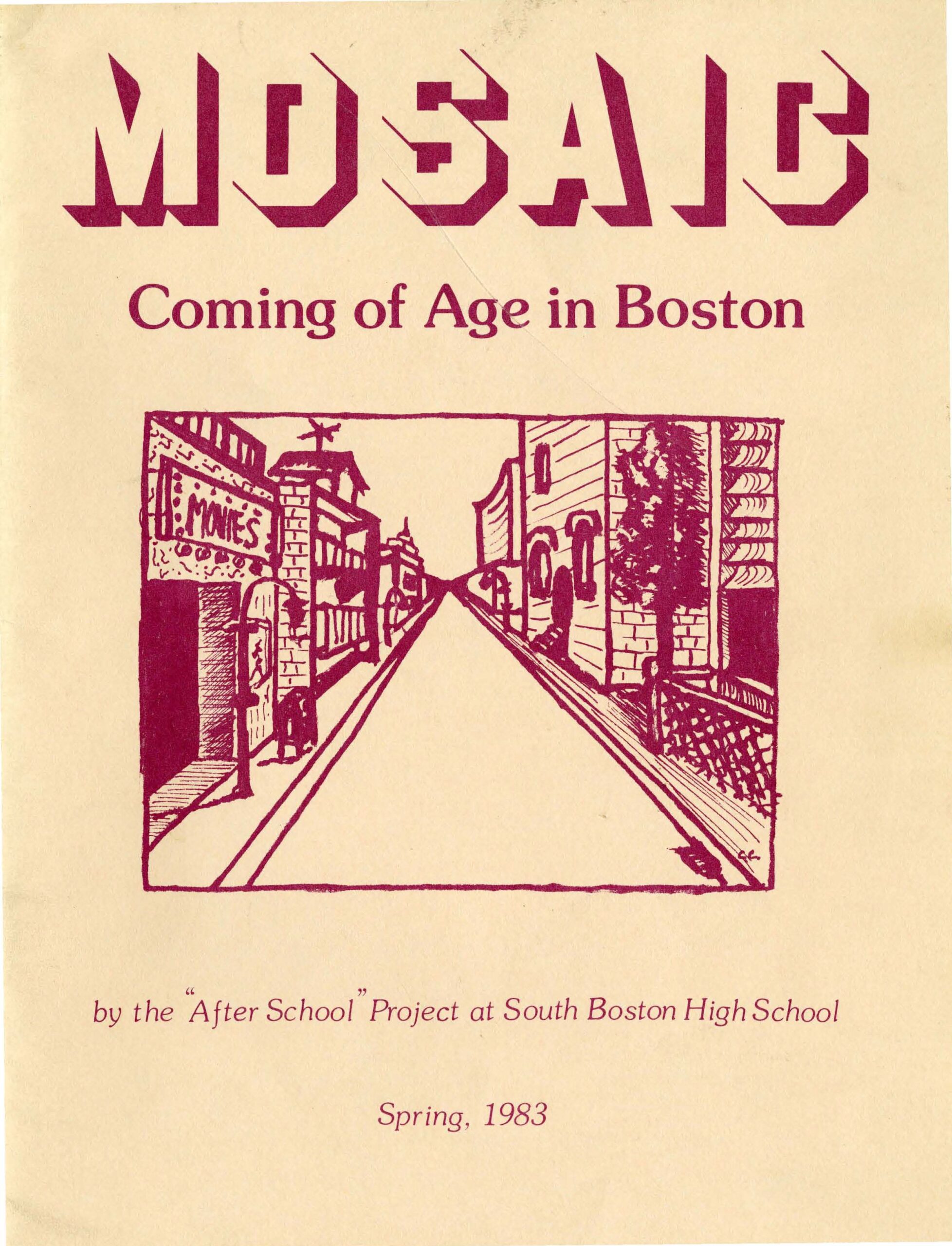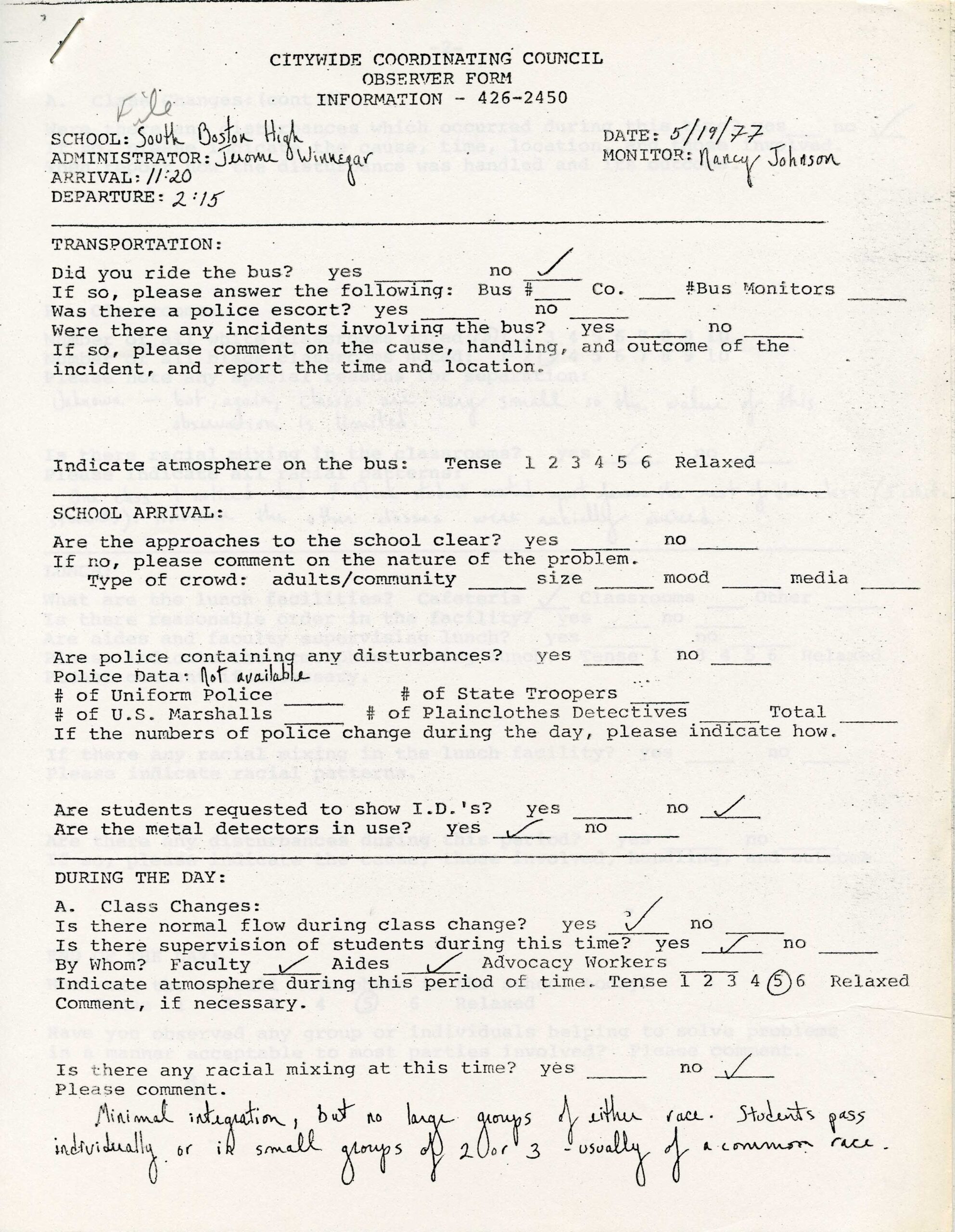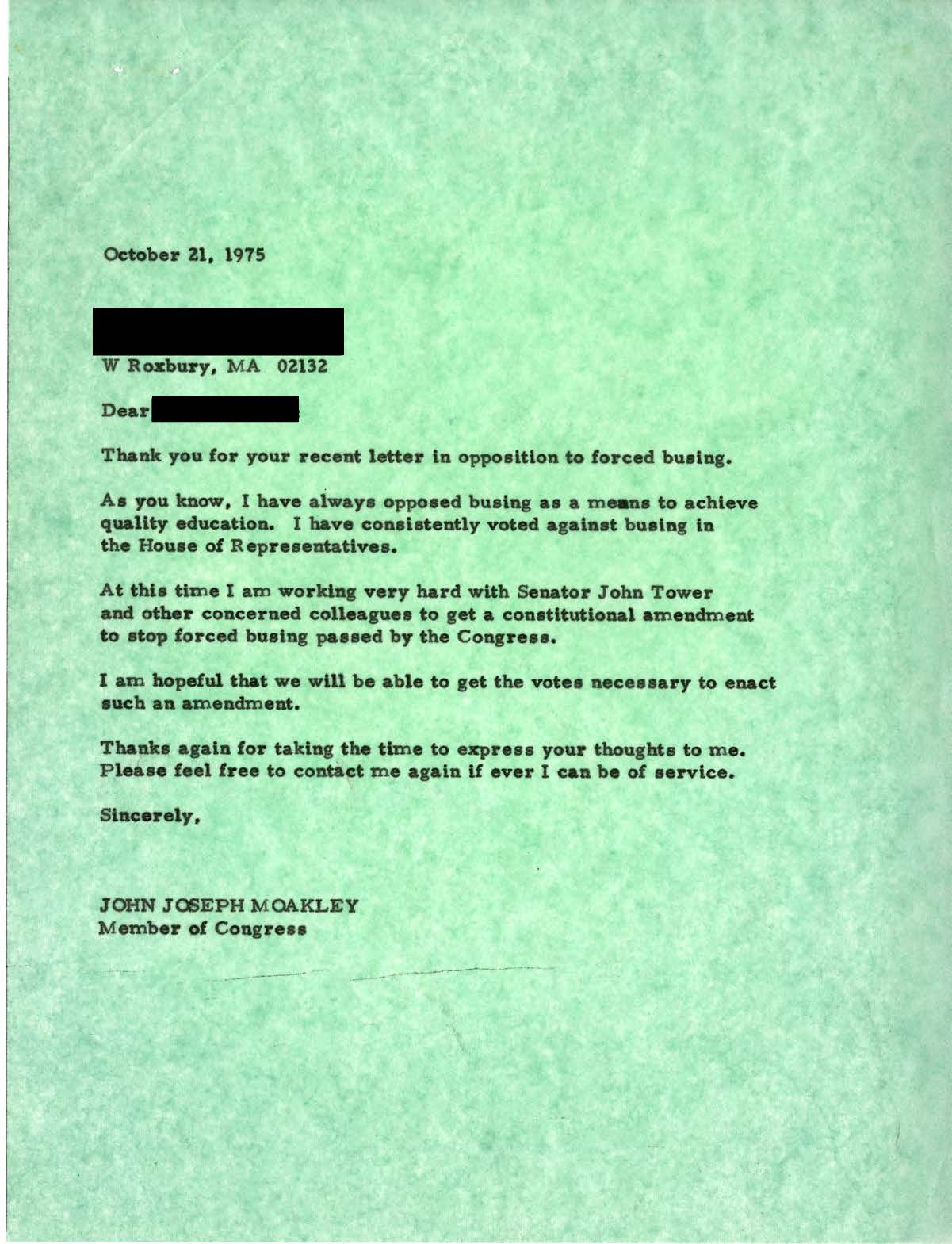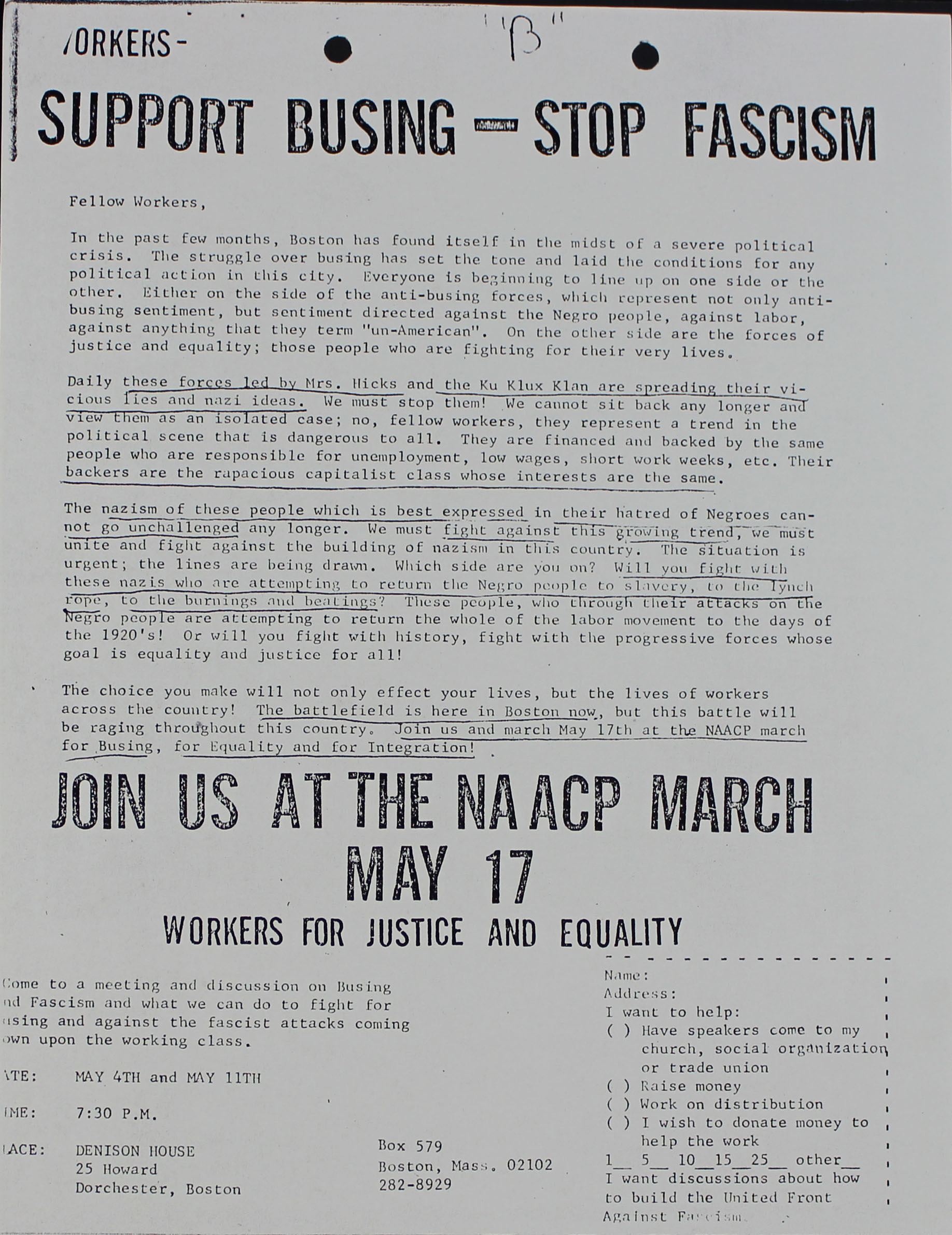About the Collections
Given the large number of primary source documents in this collection, we have curated some pieces from each archive that contributed to this project to help create a more accessible entry into exploring the collection. You can also explore the StoryMap "Boston's Desegregation History" to envision where the divided collections of materials about school desegregation in Boston reside.
Northeastern University Archives & Special Collections
8 collections from the Northeastern University Archives & Special Collections were contributed to this project. One organization, the Citywide Educational Coalition , contributed a collection of records that describe responses to busing, the hiring of a superintendent of the Boston Public Schools, and more. Linked below is a information packet for both students and parents that was distributed in 1975 to inform students and parents of their rights, new protocols, and an overview of what desegregation meant. Click below to see illustrated explanations of students rights:
Boston City Archives
The Boston City Archives have contributed materials from five of their archival collections that range from official documents to citizen correspondence. Linked below is a series of essays written by a sixth grade class who experienced Phase I Desegregation sent to Mayor Kevin H. White. Names and other identifying information have been redacted for privacy reasons. Students described what they thought integration meant before they experienced it, some describe the increase in violence they saw at their schools, and others describe the new friends they made during Phase I Desegregation.
University Archives & Special Collections at UMass Boston
UMass Boston's Archives and Special Collections contributed two collections, Judge Arthur Garrity's papers and a collection of issues of Mosaic, one of which is featured below. Mosaic was a publication from the "After School" program which began in October 1982 at South Boston High School. "After School" was a program that put current high school students in dialogue with dropouts and graduates from their high school. The issues of Mosaic engage with themes like family and education that young people in Boston faced. This particular issue includes essays about working a job, being a mother, and joining the military.
Boston College Libraries
The Boston College Libraries scanned and made available monitor reports and questionnaires from the Citywide Coordinating Council Records. The Citywide Coordinating Council was a group of volunteers appointed by the court in 1975 to monitor the implementation and progress of school desegregation in the Boston Public Schools. Included below is a monitor questionnaire from South Boston High School from May 19, 1977. Click on the image below to take a look at the questionnaires and reports to get a sense of what school desegregation looked like from an observer's point of view.
The Moakley Archive and Institute at Suffolk University
Suffolk University’s Moakley Archive and Institute contributed two collections that revolve around the activities of Congressman John Joseph Moakley, who represented South Boston. The collection spans from voter information to campaign files for his race for Boston City Council. The two collections, one of his papers and one of oral history interviews, give a sense of the ways school desegregation affected Boston community members. Featured below is correspondence between Congressman Moakley and a Roxbury constituent in 1975 regarding busing in Boston.
National Archives at Boston
The National Archives at Boston hold a great deal of case files with cases, including the original, that relate to the 1974 ruling by Judge Garrity in the Morgan v. Hennigan case. Other materials contributed include this NAACP flyer featured below. The flyer, titled with the call to action: "SUPPORT BUSING - STOP FASCISM" provides details for a march for "Busing, for Equality, and for Integration" organized by the NAACP.
